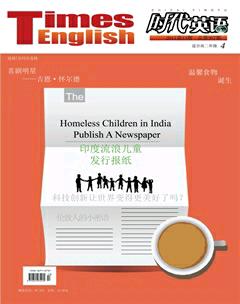是什么加快了春天到來的腳步?
The Earth's temperature is rising. And as it does, springtime phenomena — like the first bloom of flowers — are getting earlier and earlier. But rising temperatures aren't the only factor. Urban light pollution is also quickening the coming of spring. "So temperature and light are really contributing to a double whammy of making everything earlier." Richard Ffrench-Constant, an entomologist at the University of Exeter.
He and his colleagues compiled 13 years of data from citizen scientists in the U.K., who tracked the first bud burst of four common trees. Turns out, light pollution — from streetlights in cities, and along roads — pushed bud burst a full week earlier. Way beyond what rising temperatures could achieve. This disruptive timing can ripple through the ecosystem.
"The caterpillars that feed on trees are trying to match the hatching of their eggs to the timing of bud burst. Because the caterpillars want to feed on the juiciest and least chemically protected leaves. And it's not just the caterpillars, of course, that are important. But the knock-on effect is on nesting birds, which are also trying to hatch their chicks at the same time that there's the maximum number of caterpillars." So earlier buds could ultimately affect the survival of birds, and beyond. The findings are in The Proceedings of the Royal Society B.
The world's becoming increasingly urbanized, and light pollution is growing — which Ffrench-Constant says could trick trees into budding earlier and earlier. But smarter lighting — like LEDs that dial down certain wavelengths — could help. "Perhaps the exciting thing is, if we understand more about how light affects this bud burst, we might be able to devise smarter sort of street lighting that has less red components, and therefore less early bud burst." Thus keeping springtime an actual springtime phenomenon.
地球溫度正在上升。因此,花兒首次盛開等春季現象的出現時間會越來越早。但是,不斷升高的氣溫并不是唯一的影響因素。城市光污染同樣加快了春天到來的腳步。“因此,在溫度和光線的雙重沖擊下,一切都提早到來。”理查德·費倫奇·康斯坦特是英國埃克塞特大學的昆蟲學家。
他和他的同事對英國科學家統計了13年的數據進行編制,這些科學家對四種常見樹木進行追蹤,觀察它們第一次萌芽的時間。結果發現,城市及道路兩邊的路燈造成的光污染,會使樹木的發芽時間提前整整一個星期。這種影響比溫度上升造成的影響要更顯著。這種破壞性的時機會對生態系統造成影響。
“以樹木為食的毛毛蟲正試圖將自己的孵卵時間與樹木的發芽時間相匹配。因為毛毛蟲要以最多汁、最少受化學物質保護的樹葉為食。不僅毛毛蟲是這樣,當然,這一點很重要。這種連鎖反應體現在筑巢鳥類身上,它們試圖在毛毛蟲數量最多的時候孵化鳥蛋。”因此,提前發芽最終可能會影響鳥類的生存,甚至產生更加深遠的影響。該項研究結果發表在《英國皇家學會學報B》上。
世界越來越城市化,光污染的范圍也在逐漸擴大,費倫奇·康斯坦特表示這種情況會欺騙樹木,使其發芽的時間越來越早。但是LED這樣的智能燈光會調低特定的波長,這可能會有所幫助。“也許令人感到興奮的是,如果我們對燈光如何影響發芽有更多了解,我們也許能設計出發出更少紅光的智能路燈,這樣就可以使發芽時間少提前一些。”進而讓春天呈現出實際的春天現象。
【詞匯積累】
factor n. 因素,要素
track v. 記錄(研究)……的行為(發展)
ecosystem n. 生態系統
knock-on adj. 使產生連鎖反應的
urbanize v. 使城市化,使都市化

